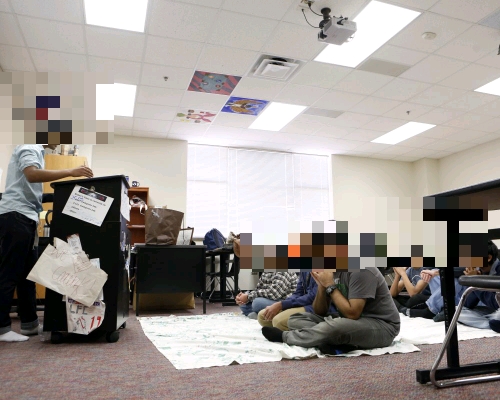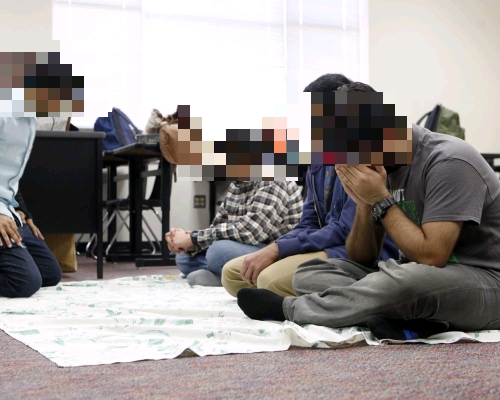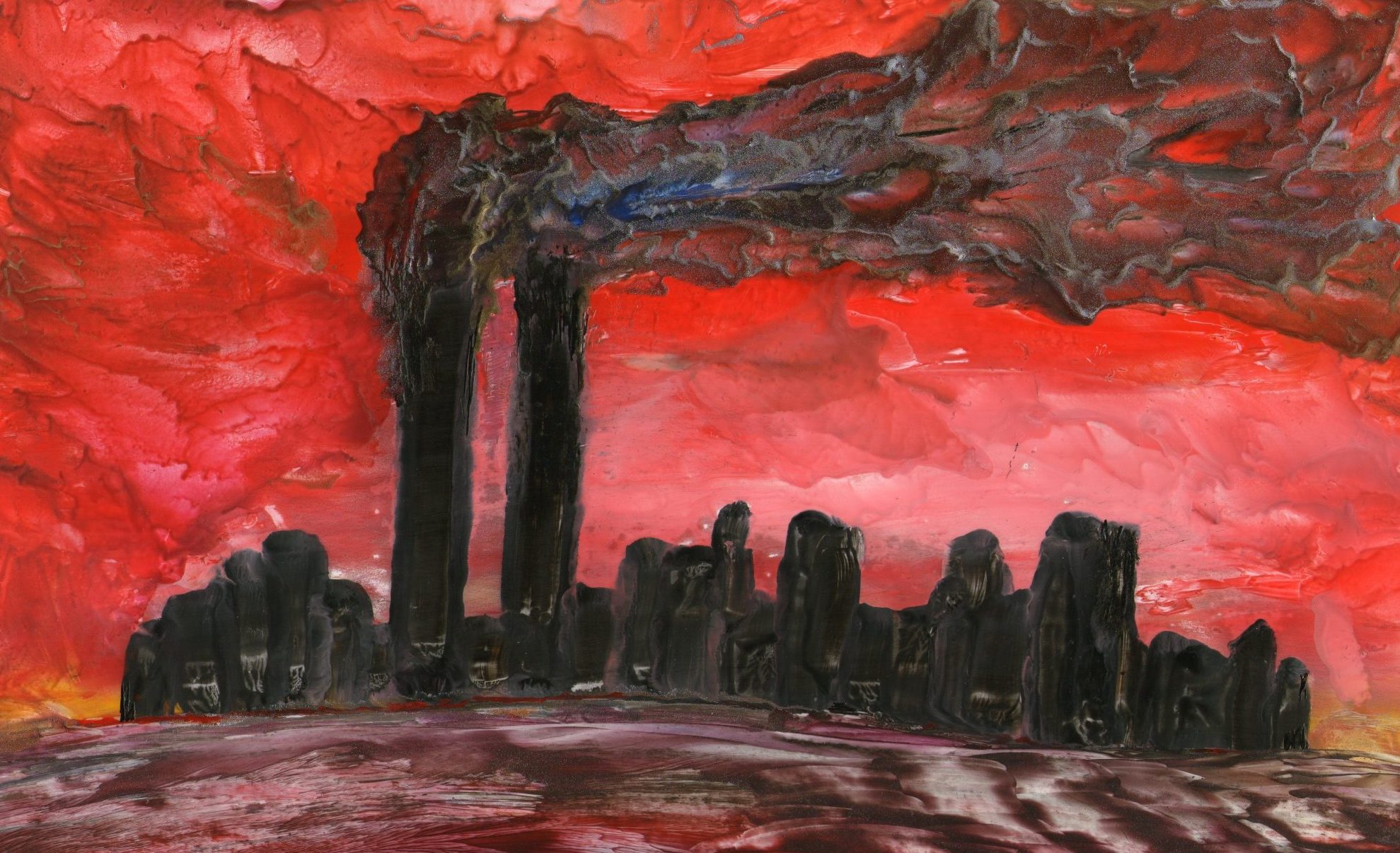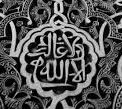
The first time many of us directly encounter the Islamist dominance of our community is when we get to college. We have left our parents behind and get to explore our identity on our own. That identity quest can include experimenting in all kinds of ways (not always so halal) – and often includes checking out the campus MSA (Muslim Students Association).
Most first year students don’t know the whole complicated history of the MSA (founded over 60 years ago with Wahabi funds, overtly supporting hardcore clerics like Maududi and Qaradawi, and expanding to form ISNA). That’s unknown history to most students, who arrive at college and just find the MSA there. It’s a place for prayers, holiday celebrations, and a place to look for mates. What can at first seem simple on the surface is much more complicated.
I was never an MSA fan, but my friend Hussein was. In fact, he is a former chapter leader – an experience that mildly traumatized him, as I recently learned.
After a long time apart, Hussein and I recently re-connected. He now works in the Gulf as a business executive. For a few hours we were in the same city and had just enough time to squeeze in dinner before he had to dash to the airport.
Hussein is your typical US-educated Gulf Arab, very infatuated with US culture, keeps a close watch on US politics, and never misses an opportunity to come to the US for work or vacation because he feels a genuine kinship to the place where he spent his college years. Now in his mid-thirties, he grew into an interesting mix of a libertarian and averagely religious guy who goes with the flow. He definitely outgrew the partying phase once he became a family man. He had an arranged marriage which he was arm-twisted into only to actually fully embrace it afterward (that’s a story for another post someday).

Our dinner conversation quickly zoomed in on the hot topic du jour: the ongoing feud among Gulf states – and how Western Islamists found themselves completely cut off from most Gulf funding they had grown accustomed to for decades.
That’s when Hussein began relating how as a freshman newly arrived at a Midwest American college he was quickly embraced by what he thought were just the local Muslims. He began getting invitations to attend prayer sessions and even lead prayers – an honor given most of the MSA members were older and more knowledgeable about religion.
By the time Ramadan came, the prayer invitations and sessions extended into learning Halaqas in the school’s chapel, then in the local mosque after breaking the fast. As the holy month went by, he and his fellow Muslim foreign students were regularly offered books about Islam, and encouraged to come and reflect about what they read in what was a book club of sorts.
It turned out the books were the writings of Hassan Al Banna (Muslim Brotherhood founder & grandfather of Tariq Ramadan), Seyed Qutb (first modern theorist of Jihadism), Hassan Al Turabi (Sudan’s foremost Islamist), and Ali Laban (a prominent Egyptian Brotherhood member).
“I was being indoctrinated, but I was too naive to realize it,” Huseein admitted to me. “My parents noticed during our phone calls that I was talking funny, and babbling out lots of outwardly religious terminology which I didn’t notice myself doing until they pointed it out.”
Hussein’s parents were not pleased, but back in 2000 these symptoms were not understood so clearly as the beginning of radicalization. By the time 9/11 took place, Hussein had been elevated to president of his local chapter of the MSA, leading prayers and running events for the “brothers” in partnership with the local mosque.
“I really enjoyed being the President of something especially that no one had ever trusted me before with any responsibility bigger than holding a video game, or sneaking a couple of adult magazines,” he laughed. “I was not the saintly future imam they made me believe I could be, I was still a teenager with hormones exploring the new world of college and co-ed life. ”
Then Hussein betrayed a hint of anger as he revealed to me: “What they were really after was my and my parents money. To them I was just a dumb Gulf kid with floos to spare.”
The pristine routine was smashed by 9/11. Hussein and his MSA chapter found himself facing hostility like never before. According to him it was the aftermath of the attacks that helped him snap out of the whole “MSA racket,” as he called it.

“For starters, when I was verbally abused by angry Americans who blamed me for the attacks, I began finally putting my finger on what bothered me in the ideological diet the Ikhwanis were feeding us. We were constantly told that we were in a struggle against the whole world’s infidels just because we are Muslims and they are not.
“Being myself singled out as ’an other’ was disturbing, and made me revisit some of the assumptions I had begun to accept from my Ikhwani handlers. Why should I complain about being singled out as responsible for something I haven’t done when I was in fact tacitly accepting that all those non-Muslims surrounding me had a hand in all the Muslim world’s problems?”
According to Hussein, that’s the moment when he became disillusioned with the Islamist cult.
“At first, it wasn’t easy for me to dodge them, especially then, right after the attacks and when all Muslims were trying to be as circumspect as possible. At first I pretended to be busy with exams, but that didn’t work for too long as some of the other MSA chapter members were classmates. In fact, their insistence that I come because I was President began to really get on my nerves. But I didn’t yet have the guts to tell them that I was done.”
His deliverance was unplanned: “I was having a hard time with managerial accounting which I was taking that semester and I was very concerned that my GPA would suffer if I didn’t get a B+ at least, so I began looking for help. It turned out that this girl who was a straight A student was looking to make some money on the side so she began tutoring me.

“As the semester went on, the girl and I became more than friends, and were hanging out more and more in public. That solved my Ikhwani problem altogether. When they saw me with the girl, they began running this whisper campaign which my friends shared with me: ’Hussein is deviating from the straight path, he is hanging out with this blond kafir girl.’
“What the ikhwanis didn’t quite factor in was that my friends who also were part of the MSA chapter, and were like me Gulf-born and raised came running to me wanting to know if my girl hand any girls friends she could introduce them to!
“Lo and behold, I didn’t even have to tell the MSA people or the mosque that I had quit. I was quickly replaced by an American-born Pakistani kid and that was that. I never set foot again in either place. And interestingly, a few of my fellow Gulf kids followed suit: We didn’t come to America to have another religious police ruining our few years of freedom before going back.”
As Hussein finished telling his story, he stopped for a minute as the look on his face was very serious. He pointed his finger at me, then began speaking very slowly and mechanically in his Gulf accent which took me a second to understand as he was speaking: “D-O-N-T Y-O-U D-A-R-E T-E-L-L M-Y W-I-F-E!”
We both burst out laughing.
